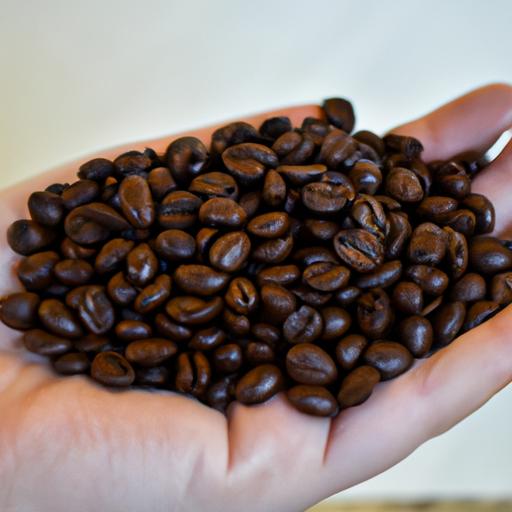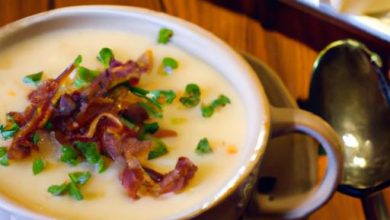Can You Grind Coffee Beans in a Regular Blender?
Whether you’re a coffee connoisseur or a casual caffeine enthusiast, the aroma and flavor of freshly ground coffee beans are hard to resist. The process of grinding coffee beans plays a crucial role in unlocking the rich flavors and enticing aromas that we associate with a perfect cup of coffee. While traditional coffee grinders are commonly used for this purpose, you might be wondering if you can achieve the same results using a regular blender. In this article, we will explore the possibility of grinding coffee beans in a regular blender and provide you with all the information you need to know.

Understanding Coffee Grinding
Before we dive into the world of blenders, let’s understand the importance of grinding coffee beans. The process of grinding coffee beans involves breaking them down into smaller particles, which increases the surface area exposed to hot water during brewing. This allows for better extraction of flavors and oils, resulting in a superior cup of coffee. The degree of grind varies depending on the brewing method, with finer grinds suitable for espresso and coarser grinds ideal for French press or cold brew.

The Role of a Blender
Blenders are versatile kitchen appliances designed for various culinary tasks, including blending, pureeing, and mixing. They consist of a motor-driven blade mechanism housed in a container. While blenders are excellent for creating smoothies, soups, and sauces, they might not be the most suitable option when it comes to grinding coffee beans.
Blenders are primarily designed to blend and liquefy ingredients, and their blades are not optimized for grinding hard substances like coffee beans. Unlike coffee grinders, blenders lack the necessary features, such as adjustable grind settings, to achieve the desired consistency of coffee grounds. Additionally, the high-speed rotation of blender blades generates heat, which can negatively impact the quality and flavor of the coffee.

Can a Regular Blender Grind Coffee Beans?
While it is technically possible to grind coffee beans in a regular blender, the results may not meet your expectations. Blenders are generally unable to achieve a consistent and uniform grind required for brewing a perfect cup of coffee. The lack of control over the grind size can lead to uneven extraction, resulting in over-extracted or under-extracted coffee.
Furthermore, grinding coffee beans in a blender can be detrimental to the blender itself. Coffee beans are hard and can put excessive strain on the blender’s motor and blades, potentially leading to damage or reduced performance. It is essential to consider the long-term effects on your blender before attempting to grind coffee beans in it.
Frequently Asked Questions (FAQ)
Can a blender achieve a fine grind for espresso?
Achieving a fine grind for espresso requires precise control over the grind size, which is difficult to achieve with a regular blender. Espresso requires a very fine grind to allow for the proper extraction of flavors. Blenders, with their limited capabilities, may not be able to consistently produce the fine grind necessary for espresso.
Will grinding coffee beans in a blender affect the blender’s performance?
Yes, grinding coffee beans in a blender can have adverse effects on its performance. Coffee beans are hard and can put strain on the blender’s motor and blades, potentially leading to damage or reduced durability. It is advisable to use appliances specifically designed for coffee grinding to ensure optimal results and prevent any damage to your blender.
Are there any specific blenders recommended for grinding coffee beans?
While blenders are not the ideal choice for grinding coffee beans, if you still want to give it a try, it is recommended to use a high-powered blender. These blenders often have more robust motors and stronger blades, which can handle the task better than standard blenders. However, it is important to note that even with a high-powered blender, achieving consistent and uniform coffee grounds may still be challenging.
Conclusion
In conclusion, while it is technically possible to grind coffee beans in a regular blender, it is not recommended if you seek optimal results. Blenders lack the necessary features and control over grind size to produce consistent and uniform coffee grounds. Moreover, grinding coffee beans in a blender can potentially damage the appliance and affect its performance in the long run.
For the best coffee grinding experience, it is advisable to invest in a dedicated coffee grinder that offers adjustable grind settings for different brewing methods. This will ensure that you have full control over the grind size, resulting in a perfect cup of coffee every time. So, resist the temptation to use your regular blender for coffee grinding and explore the world of coffee grinders to elevate your coffee experience.
Remember, at Digi Waz, we strive to provide you with valuable insights and information to enhance your culinary journey. Whether you’re a seasoned barista or a coffee enthusiast, we are here to guide you towards making the best choices for your coffee brewing adventures.
[brand]
